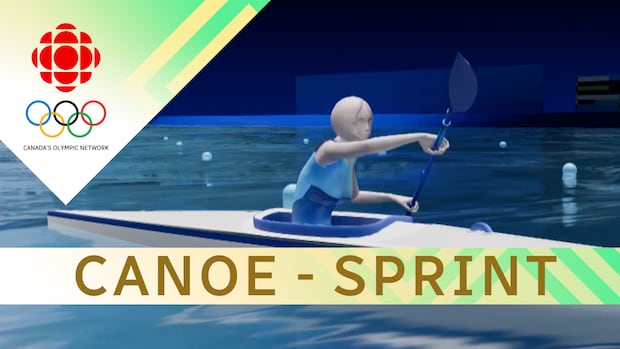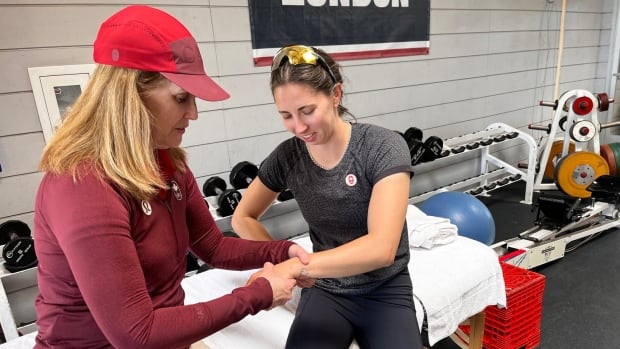
Dr. Tina Atkinson grew up dreaming of going to the Olympics.
Now, she can check both the Winter and Summer Olympics off her bucket list.
The Nova Scotian is the doctor for the Canadian canoe/kayak team at the Olympic Games in Paris. The team began competition in slalom events on Saturday. Sprint events begin on Aug. 6.
Her selection to the team’s support staff caps off a whirlwind three years for Atkinson. She was also a doctor on the Canadian women’s hockey team’s staff at the 2022 Winter Olympics in Beijing, and helped launch the PWHL as the league’s first chief medical officer this past winter.
“For me, it’s about being part of something bigger than yourself and sport, but also the people that you get to work with and spend time with,” said Atkinson, who spoke to CBC Sports earlier this week from canoe/kayak team training in Le Temple-sur-Lot, south of Paris.
It’s the culmination of a journey that started when Atkinson, who grew up in the small town of Shelburne on the southern coast of Nova Scotia, wrote a high school essay about wanting to become a sport medicine doctor. She played several sports in high school and competed in rugby in university, before going to medical school.
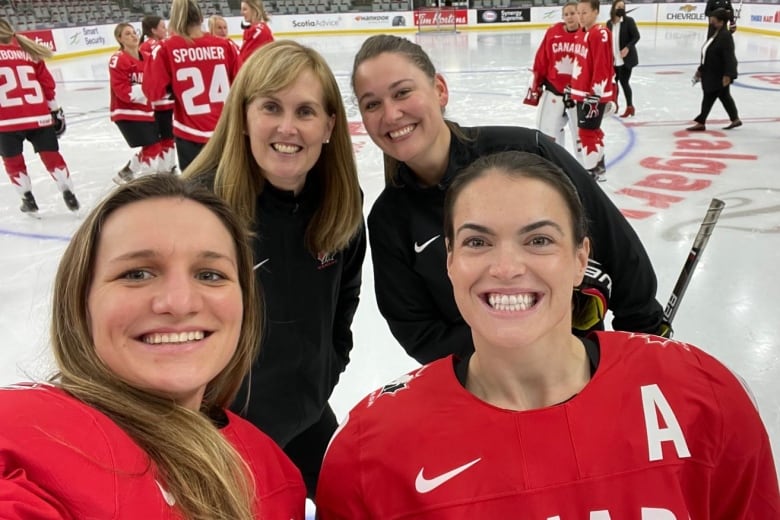
That love of sports came from her family, and that’s where her love for the Olympics began, too.
A gold medal in a bubble
Atkinson has been a sport medicine physician, family doctor and emergency room doctor in the Halifax area for more than two decades.
She was the team physician for the QMJHL’s Halifax Mooseheads for more than 10 years, and also spent time as the chief medical officer with Hockey Nova Scotia.
But no experience may be more unique than being the team doctor for the Canadian women’s hockey team in the middle of a pandemic inside the 2022 Olympic bubble in China.
COVID tests and regular calls with public health colleagues back in Nova Scotia were part of the norm, with everyone under strict COVID protocols.
The team was all in on making sure they followed those rules to be able to compete, Atkinson said. It’s hard to forget the image of the Canadians wearing N95 masks for an entire game against Russia due to COVID concerns.
“For our team, dealing with COVID for a few years and having world championships cancelled and so many sacrifices, so many COVID tests, so many nights in hotels isolated, we were so happy to be there and just be able to be together and play,” she said.
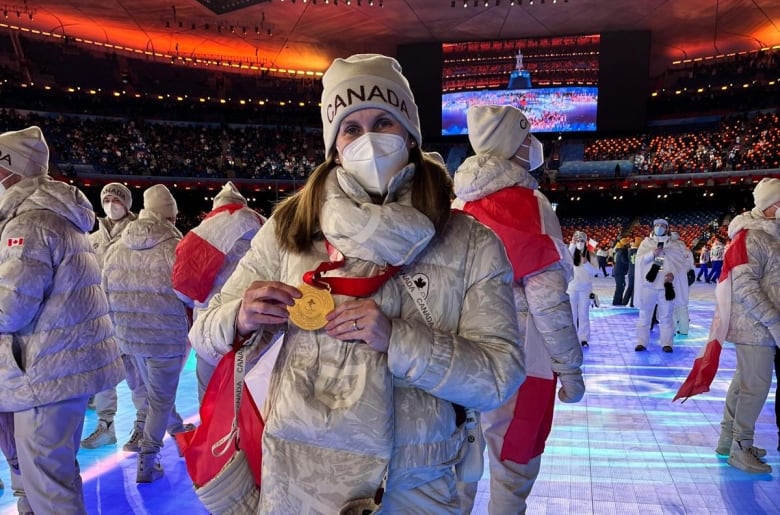
Being inside that bubble, with the Games closed off to spectators, friends and family, created a close bond for everyone on that women’s team and their staff.
Winning gold was the cherry on top. When the final buzzer sounded and Canada defeated the United States to reclaim the Olympic title, Atkinson felt a mix of excitement, relief and pride. She tried to hold it together inside the arena.
“It’s being so proud because they played so well and we’d been through so much,” she said. “As medical staff, you know everything that they’re going through and they’ve been through.
“The players were so amazing on that team. They’d come over to the bench and hug all of us and thank us for what we did.”
Building a league
As the PWHL’s leadership built the women’s hockey league from scratch last fall, one of the items on a very long to-do list was writing medical standards, which ranged from what kind of medical professionals each team needed to have on staff, to what every player’s pre-season medical check-up should include.
Concussion protocol was also a priority, and something crucial to making sure players are safe on the ice.
The league called in Atkinson and a doctor from USA Hockey to start writing those standards.
“Over the course of the work that she did with us, you could just tell she was so detail oriented,” said Jayna Hefford, the PWHL’s senior vice president of hockey operations. “She loved what she did. She cared deeply about the athletes.”
It was a no-brainer for the league to ask Atkinson to stay on as the chief medical officer, Hefford said.
“She’s been amazing for us this year,” she said. “She’s been really present. She’s at many of the games and just works a ton on this.”
Atkinson, who also sits on the league’s hockey operations committee, is proud of helping build the league from scratch.
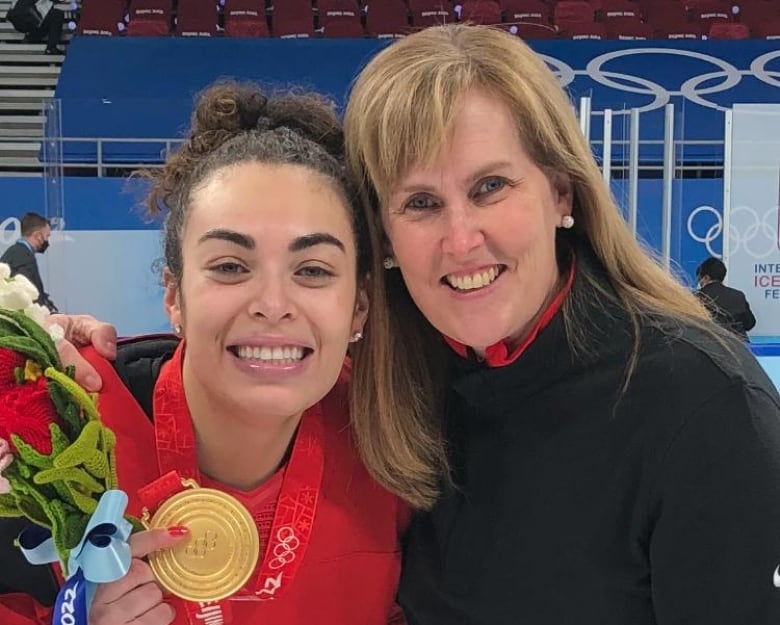
It also meant she got a front-row seat to several historic moments in the league’s inaugural season.
“We just had such an awesome year,” Atkinson said. “Obviously we have growing pains and we have things we want to improve, but just a really special year of a lot of work. But it didn’t feel like work.”
‘I just couldn’t ask for anything more’
Atkinson’s latest Olympic journey started more than a decade ago, when she began working with canoe and kayak athletes at a national team training centre in Dartmouth, N.S., where she lives. She’s focused primarily on the sprint division, as the lead team doctor, but has also worked with the slalom division.
She works with athletes from the next generation training program all the way up to the national team. In tight-knit Nova Scotia, it means she can follow their Olympic journeys from start to finish and get to know them along the way.
“It’s really cool to see them over the past few years make it to the Olympics,” she said.
Paris will be a different Olympic experience than Beijing, with fans in the stands, and one Atkinson won’t take for granted.
WATCH | How does canoe sprint work at the Olympics?
Not sure how canoe sprint is scored or set up at the Olympics? This quick explainer will get you up to speed.
It’s better than she could have scripted it when she wrote that essay back in Grade 11 or when she watched the Olympics with her family, dreaming about being there someday, in some way.
“Everything that I’ve done in my life, including being a mom and being a sport mom, kind of led me to this, what I’m doing now,” she said. “I just couldn’t ask for anything more.”
